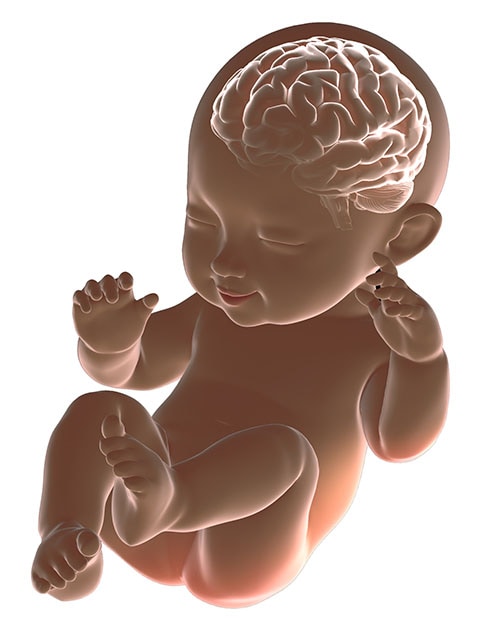 Source: bing.com
Source: bing.comAs a new parent, you want the best for your baby. From the moment they are born, you want to provide them with everything they need to grow and thrive. One of the most important things you can do for your baby is to understand their brain development. The brain is the center of your child’s growth and learning, and it’s essential to understand what happens in their brain during this critical early stage of development.
Table of Contents
The Importance of Early Brain Development
The first few years of your child’s life are crucial for their brain development. During this time, their brain is rapidly growing and developing, forming trillions of connections between neurons. This process is known as neuroplasticity, and it allows your baby’s brain to adapt to new experiences and learn at an accelerated rate. This is why early childhood is often referred to as the “critical period” for brain development.
Research has shown that the quality of a child’s experiences during this time has a significant impact on their cognitive, social, and emotional development. Positive experiences, such as loving interactions with caregivers, exposure to language, and opportunities for exploration and play, can have a profound effect on your child’s brain development. On the other hand, negative experiences, such as neglect, abuse, or exposure to toxic stress, can have long-lasting effects on your child’s brain development and negatively impact their future well-being.
Stages of Brain Development
Understanding the stages of brain development can help you provide the best possible environment for your baby’s growth and learning. Here are the four stages of brain development:
Stage 1: The Neonatal Stage (0-2 Months)
During this stage, your baby’s brain is still in the early stages of development. They are born with basic reflexes, such as sucking and rooting, and their brain is beginning to develop basic functions such as regulating body temperature, breathing, and digesting food.
Stage 2: The Infancy Stage (2-12 Months)
This is a critical stage for brain development, as your baby’s brain is rapidly growing and forming new connections. During this time, your baby will learn to sit up, crawl, and eventually walk. They will also start to develop basic language skills, such as recognizing their name and simple words.
Stage 3: The Toddler Stage (1-3 Years)
Your toddler is now more mobile and exploring their environment. During this stage, their brain is developing rapidly, forming new connections in response to their experiences. They are learning new words, developing social skills, and gaining a sense of independence.
Stage 4: The Preschool Stage (3-5 Years)
At this stage, your child’s brain is rapidly developing complex cognitive skills, such as problem-solving, reasoning, and critical thinking. They are also developing their social and emotional skills and beginning to form their own identity.
How to Support Your Baby’s Brain Development
There are many things you can do to support your baby’s brain development during the critical period of early childhood. Here are some tips:
1. Create a Safe and Stimulating Environment
Provide a safe and stimulating environment for your baby to explore. This can include age-appropriate toys, books, and music. Also, make sure to child-proof your home to reduce the risk of accidents.
2. Engage in Positive Interactions
Positively interact with your baby through talking, singing, and cuddling. This can help promote the development of language and social skills.
3. Encourage Exploration and Play
Encourage your baby to explore their environment through play. This can help develop their fine and gross motor skills.
4. Provide Nutritious Food and Adequate Sleep
Make sure your baby is getting adequate nutrition and sleep. The brain needs proper nutrition and rest to function at its best.
5. Seek Help When Needed
If you have concerns about your baby’s development, seek help from a pediatrician or early childhood specialist. Early intervention can make a significant difference in your child’s future well-being.
Frequently Asked Questions
Q: At what age does a baby’s brain stop developing?
A: The brain continues to develop throughout childhood and adolescence, with different areas of the brain developing at different rates. However, the critical period for brain development is during the first few years of life.
Q: Can a baby’s brain development be delayed?
A: Yes, a variety of factors, including genetics, environment, and health, can affect a baby’s brain development and potentially lead to developmental delays.
Q: Are there any activities that can harm a baby’s brain development?
A: Yes, exposure to toxic stress, such as neglect, abuse, or trauma, can have long-lasting effects on a baby’s brain development. It’s important to provide a safe and nurturing environment for your baby to promote healthy brain development.
Q: Can a baby’s brain development be improved?
A: Yes, providing a stimulating and nurturing environment and engaging in positive interactions with your baby can help promote healthy brain development.
Q: What are some signs of healthy brain development in a baby?
A: Some signs of healthy brain development in a baby include reaching developmental milestones, such as sitting up, crawling, and walking, responding to familiar faces and voices, and displaying curiosity and interest in their environment.
In conclusion, understanding your baby’s brain development is essential for their future well-being. By providing a safe and stimulating environment and engaging in positive interactions with your baby, you can promote healthy brain development and set them up for success in life.
